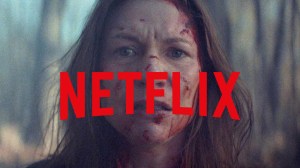With Thanksgiving behind us, it’s full steam ahead into the Christmas season — and that means it’s Christmas movie season. Between now and Christmas Day, television networks and streaming services offer up a wealth of programming to celebrate the season including new fare and beloved classics. Among those classics is The Wizard of Oz. The 1939 adaptation of L. Frank Baum’s 1900 children’s fantasy novel The Wonderful Wizard of Oz, has long been a fan-favorite and is something that, for many, is as much a part of the Christmas season as Rudolph the Red-Nosed Reindeer. But unlike many favorites, The Wizard of Oz doesn’t have any actual ties to the holiday season, begging the question of why the film is considered a holiday classic — and should it really be?
Videos by ComicBook.com
To consider The Wizard of Oz’s place as a Christmas movie there are a few factors to consider. First, there’s the question of how the film ended up being a holiday staple on television. Then, one has to consider what a Christmas movie really is while examining why the film resonates so much during the holidays. For our determination, we need to start at the beginning. In terms of its theatrical release, The Wizard of Oz was very clearly never intended to be a holiday movie. The Victor Fleming-directed, Judy Garland-starring film originally opened in theaters on August 10,1939 when it held its premiere at the Orpheum Theatre in Green Bay, Wisconsin before opening nationwide on August 25th of that year. Obviously, August is not November or even December; one can’t even make a “Christmas in July” connection. Instead, the film’s earliest association with the fall came in 1956 — specifically November 3, 1956 — when CBS first broadcast it. This broadcast made The Wizard of Oz the first Hollywood film to be shown uncut in prime time on a television network across the country.

The Wizard of Oz Shifts to Fall Broadcast
After the successful broadcast of The Wizard of Oz in 1956, the film didn’t air on television again until 1959 when it returned to CBS, but not in November. Between 1959 and 1962, the film was aired on the network in December. Despite the film eventually shifting to a spring air date — something that would continue until the 1990s — as well as hopping networks a few times, the seeds for a holiday classic were sewn. Since 1999, The Wizard of Oz has been aired around Thanksgiving and in the days leading up to Christmas when featured on broadcast television. These broadcasts just in the general seasonal proximity of Christmas and around the Thanksgiving holiday which sees audiences gathering with family and often turning to television for entertainment alone have cemented the film’s “Christmas movie” status by proximity.
[RELATED: Does Dorothy Show Up in Wicked (And What Does it Mean For Part 2?)]
While the tradition of watching something around the holidays is generally enough to make it part of the holiday — there’s something to be said about the comfort of routine in what is historically a busy and sometimes stressful season, after all — thematically, The Wizard of Oz isn’t an obvious fit. In The Wizard of Oz, Kansas farm girl Dorothy Gale runs away from home after her dog, Toto, is to be taken by the authorities after biting neighbor Almira Gulch. However, after being persuaded to return home by a fortune teller, Dorothy hurries back only to find herself trapped as a tornado approaches and as she seeks shelter in the house, she’s knocked out while the tornado lifts the house and drops it in a strange land — Oz. In Oz, Dorothy is then set out on a quest to make her way to the Emerald City where the Wizard of Oz might be able to help her make her way home. Spoiler alert: Dorothy does, in fact, make it home after being pursued by the Wicked Witch of the West, ultimately learning that the power to go home was always within her but she had to learn it for herself. The film ends with Dorothy waking up in her own bed, relieved to be home among her loved ones.
Anything Can Be a Christmas Movie if You Believe
Given that The Wizard of Oz features a story about the desire to return home, despite a lack of overt “Christmas” ties, it is easy to see the draw of the film at the holidays. For many, Christmas is a time of being with family and that often includes travel “home” as people gather together with relatives and loved ones that they perhaps do not see regularly or live near during the rest of the year. There’s also something to be said for the element of magic in The Wizard of Oz. While the Wizard ends up merely being a man (also from Kansas) who got blown to Oz himself, before that reveal the Wizard grants the wishes of Dorothy’s companions — the Scarecrow, Tin Man, and Cowardly Lion. It has some parallels to Santa Claus giving gifts to good girls and boys. The result, when paired with the window during which the film is aired each year, elevates the film to a holiday status.
This all brings us to the final question: should The Wizard of Oz be a Christmas movie? It’s a question that is asked about many movies that people consider holiday fare — Batman Returns and Die Hard both come to mind — but the truth is, there is no set criteria for a “Christmas movie.” While some films are very clearly intended to be holiday fare due to their theme or characters, others find their way into the ever-growing “canon” simply by being a much-loved part of our collective holiday culture. So, is The Wizard of Oz a Christmas movie? Not directly, but during the time of year when people take time to gather together with loved ones, embrace nostalgia, and generally dare to believe in the magic of the season, anything can be a Christmas movie — and The Wizard of Oz more than deserves to be one.
The Wizard of Oz is available to stream on Max.








